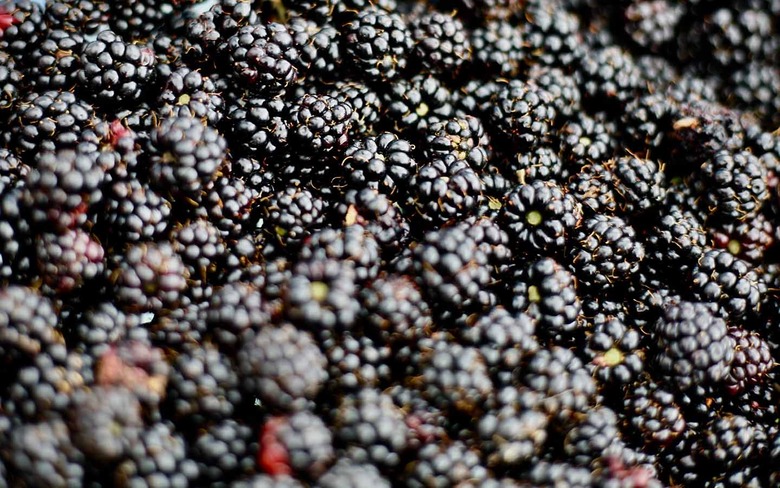FDA Reveals Berry And Shrimp Recalls Over Norovirus And Listeria
Over the past two days, the FDA has published two different food recall announcements that involve potentially contaminated food products sold to the public. The first of the two recalls involves blackberries and frozen berry mixes that may infect people with norovirus, a highly contagious virus that can be severe in kids and the elderly. The second recall published on Saturday involves shrimp.
The berry recall involves two products from manufacturer Rader Farms: frozen Berry Medley sold in 16oz and 32oz bags, as well as frozen BlackBerries sold in 16oz bags. Both are sold under the WinCo brand at WinCo Foods stores in multiple states, including Idaho, Oregon, Arizona, Utah, Nevada, California, Texas, Washington, Montana, and Oklahoma.

The FDA lists the recalled products' UPC codes on its website here. There haven't been any reports of illnesses caused by these recalled foods as of Saturday, March 14. The FDA says that it discovered the norovirus contamination after sampling part of the product; it then alerted WinCo, which recalled the berries.
Joining the berry recall is another published by the FDA on Saturday, March 14, including whiteleg shrimp with the tail still on. This shrimp isn't sold to consumers in frozen form; rather, it was butterflied and cooked, then sold as part of prepared sushi products sold at grocery stores, business dining centers, cafeterias, and similar places.
The sushi with the recalled shrimp was available for sale in around 40 states. AFC Distribution, the company that distributes the shrimp, has recalled the products and stores and cafeterias offering sushi made from it are advised to pull the products and throw them away. At this point in time, it's possible that the sushi may still be made available to consumers, plus some people may still have some of this recalled shrimp sushi in their fridges.
Consumers are advised to throw this sushi away or take it back for a refund. The potential contamination involves Listeria, a foodborne illness that can be deadly.
